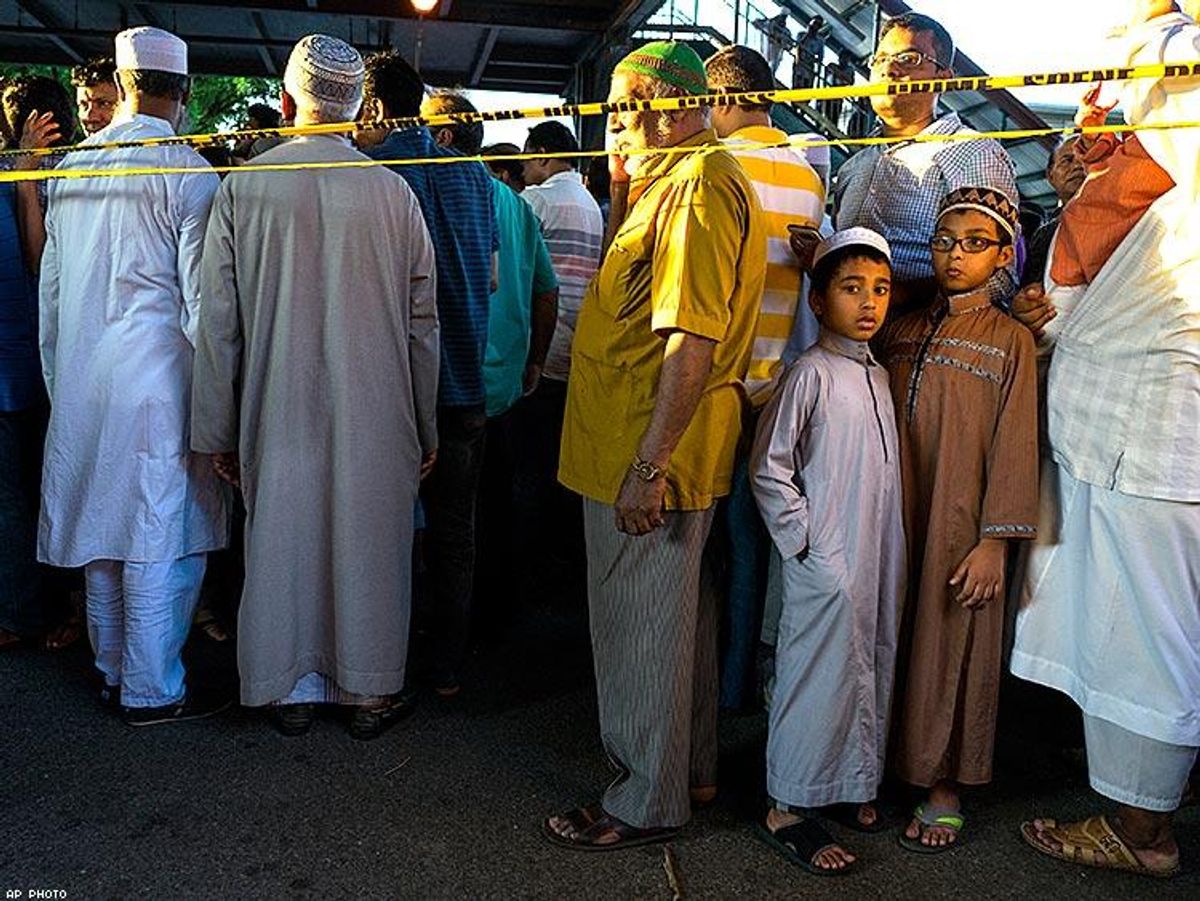As police investigate the murder of an imam and his associate in New York City on Saturday afternoon, hundreds of Americans from numerous faiths are offering to walk alongside traumatized Muslims, using a social media hashtag promising "I'll Walk With You."
Imam Maulama Akonjee and Thara Uddin were both shot from behind at point-blank range in broad daylight by a single, unidentified gunman as the men walked home from afternoon prayers at Al-Furqan Jame Masjid mosque in Queens Saturday, reports Time. The 55-year-old imam was fatally shot in the back of the head, while the 64-year-old Uddin was shot in the chest, and died four hours later at a local hospital.
Both men were fathers of three and Bangladeshi immigrants, and well-respected members of their local communities, according to the New York Daily News. Although police have released a sketch of the suspect, they have not commented about a possible motive. But that hasn't stopped area Muslims from calling the attack a hate crime against Muslims in general. The New York Police Department Hate Crimes Task Force is reportedly investigating the incident, but a "high-ranking police source" told the Daily News it was "too early to tell" what the motive was.
As Muslims in Queens and beyond grieve what many believe to be a targeted attack on a local faith leader, people from around the country and across the religious spectrum are turning to social media to offer solidarity through the hashtag #IllWalkWithYou.
Gay father and Minneapolis Rabbi Michael Adam Latz joined in on the hashtag, promising to walk alongside Muslims who may be afraid to travel to their mosques to worship, mourn, or seek community.
The National LGBTQ Task Force also issued a statement about the shooting Monday, pointing to the hostile climate of violent Islamophobia fostered by many right-wing pundits and politicians -- not least of whom is Republican presidential nominee Donald Trump, who has called for a ban on all Muslims entering the country.
"Our thoughts and prayers are with Imam Maulama Akonjee's and Thara Uddin's families and the worshippers at Al-Furqan Jame Masjid mosque," said Rev. Rodney McKenzie, director of the Academy for Leadership and Action at the National LGBTQ Task Force. "The imam by all accounts was a popular figure who commanded respect from across the entire community. It's unclear at this stage what the motivation for these murders is. However, the atmosphere of islamophobia being drummed up by some politicians and media pundits clearly helps create an atmosphere where violent crimes motivated by hate are more likely."
Other social media users -- both LGBT and straight -- promised to walk alongside those who were afraid to move freely in such an openly hostile environment.
Others offered to walk with Muslim people in their own communities or wherever they might cross paths:
Promising to accompany a person who belongs to a marginalized population in the wake of hateful rhetoric or action has become a cornerstone of allyship in today's interconnected, globalized world.
After transgender people began pushing back on the unfounded scare tactics that underlie so-called bathroom bills with the hashtag #WeJustNeedtoPee, cisgender (nontrans) allies responded with their own hashtag, promising #IllGoWithYou to the bathroom. The campaign then grew beyond social media and is now housed on a website that offers buttons, stickers, resources, and an ally pledge that aims to help non-trans people understand how to support their trans friends and loved ones in bathrooms, locker rooms, and other gendered spaces.
Sadly, this isn't the first time a similar hashtag has arisen in response to what appears to be anti-Muslim violence. Carrying a similar sentiment, the hashtag #IllRideWithYou surfaced in the wake of anti-Muslim backlash after an armed Muslim man took hostages at a Lindt chocolate cafe in Sydney for 16 hours, killing two people, including a gay man who managed the cafe.
Although the hashtag can be considered a powerful symbol of solidarity, one American Muslim pointed out that true allyship must move beyond social media.













































































